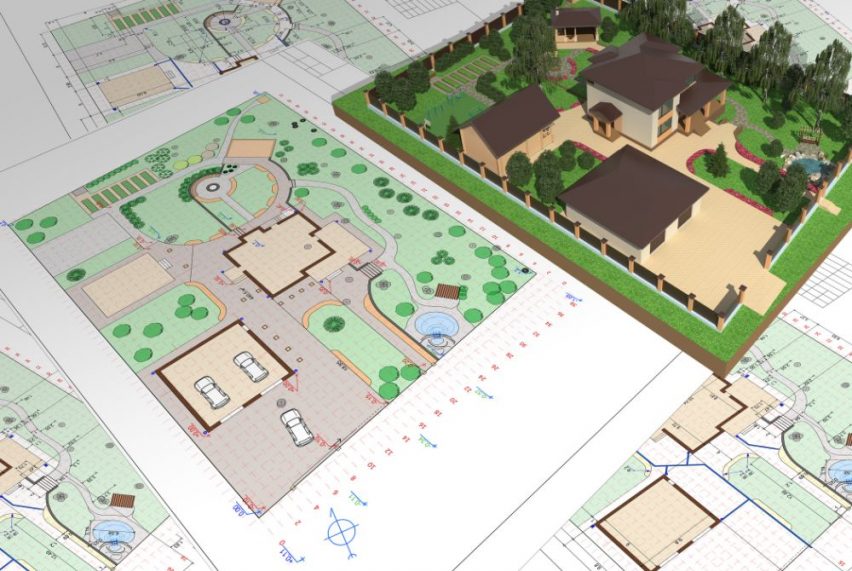Can you capitalize rental expenses of land?
Last update: March 2023
“We run the school and we plan to build the new school building on the leased land. We leased a land from the government for 40 years with an option to renew for another period. The rentals are at market conditions.
The construction is going to take about 3 years. Can we capitalize the rental payments during construction into the cost of the new school building?
Another question is that a part of the older school building undergoes major refurbishment and we had to lease a building to continue with classes. Can we capitalize these rentals into the cost of the new building?”
Answer: Not really.
The short answer is – NO, I would not do it, in both cases.
Let me explain you why.
Capitalization of land rental expenses
I know that many companies do capitalize the rental expenses in pre-opening period or during the construction because they consider it as expenses directly attributable to bringing the asset to the location and condition to operate as intended by the management.
But, let me tell you that the rental expenses in this case are NOT attributable to the construction itself, but they are attributable to the leased property – land.
The paragraph 58 of IAS 16 specifically says that the land and buildings are separable assets and are accounted for separately when they are acquired together.
So, yes, it is true that without this rental expense the school would not be able to construct the new school building, but under IAS 16, the company still must distinguish the land and building.
In this case, the rental expense relates to the land, not the building – so no capitalization.
Also, let me point you to the paragraph 19 of IAS 16.
It deals with expenses during the pre-opening period – it’s clearly said that no, you cannot capitalize the similar expenses.
What to do instead?
Well, we are in 2023 and since 2019, the new lease standard IFRS 16 is in place. That solves a few things, because under IFRS 16, you are effectively capitalizing the operating lease of land anyway, in the form of right-of-use asset.
Capitalization of rental expenses to continue business
The school refurbishes the old building and moves classes to another leased building while the new one is constructed or the older one is refurbished.
Can the school capitalize the rental expenses of the alternative building?
No, it cannot.
The reason is that these expenses are not directly attributable to the construction of the new building or to the refurbishment of the old one – I think that the school can do both without renting out the alternative building.
These expenses are attributable to continuing the business, they are simply related to the revenue-generating activities and thus they need to be expensed.
Of course, here’s IFRS 16, so if you apply this standard and the lease is for more than 12 months, then you would probably need to account for certain right-of-use asset, too.
Any questions or comments? Please share them below. Thank you!
Tags In
JOIN OUR FREE NEWSLETTER AND GET
report "Top 7 IFRS Mistakes" + free IFRS mini-course
Please check your inbox to confirm your subscription.
30 Comments
Leave a Reply Cancel reply
Recent Comments
- Saheed Kehinde on How to account for intercompany loans under IFRS
- hassan ali on IFRS 15 Explained: Full Guide on 5-step Model for Revenue Recognition + Free Journal Entries Template
- BiG4 on IAS 23 Borrowing Costs Explained (2025) + Free Checklist & Video
- Mpho on How to present leases under IFRS 16 in the statement of cash flows (IAS 7)
- Silvia on IFRS 18 Explained: Full Guide + Free Video Lectures + Checklist
Categories
- Accounting Policies and Estimates (14)
- Consolidation and Groups (25)
- Current Assets (21)
- Financial Instruments (56)
- Financial Statements (54)
- Foreign Currency (9)
- IFRS Videos (74)
- Insurance (3)
- Most popular (6)
- Non-current Assets (56)
- Other Topics (15)
- Provisions and Other Liabilities (46)
- Revenue Recognition (27)
- Uncategorized (1)





Thank you Silvia for raising this issue. I just would like to share with you and the readers the opinion issued by the Saudi Organization for Chartered and Professional Accountants (SOCPA) in this regard;
IAS 16 Property, Plant and Equipment, para. 58, provides that land and buildings are separable assets and are accounted for separately. In addition, IFRS 16 Leases, para. B55, provides that when a lease includes both land and buildings elements, a lessor shall assess the classification of each element as a finance lease or an operating lease separately. Accordingly, there is no interrelation between the recognition of costs of land and buildings, and there is no exception to that rule, no matter if buildings are existent at the time the land is purchased or leased or are constructed at a later time. The IFRS standards do not include a requirement to the effect that the cost of land (leased or purchased) constitutes a part of the cost of a building during its construction period although the building cannot be brought to the location and condition necessary for it to be capable of operating in the manner intended by management in the absence of land. There is no conceptual basis to differentiate between the right to use the land or its attachment to the building during the construction period and thereafter given the permanent attachment between these assets. Therefore, the opinion that “the lease cost of a land (the depreciation amount of the right of use asset) during the construction period of buildings thereon should be deemed part of the costs directly attributable to bringing buildings to the location and condition necessary for it to be capable of operating in the manner intended by management” would lead to a significant issue when treating costs of the land and building as being separable assets as required by the applicable standards. This would necessarily result in treating total depreciation of the right of use asset of the land (or its purchase price) as a cost that is directly attributable to bringing the asset to the location and condition necessary for it to be capable of operating in the manner intended by management because, contrary to the applicable standards that require treating land as a separable asset from the building, the building is permanently attached to the land. The depreciation of the right of use asset of a leased land may be attributed to an asset that is being constructed thereon only in the case that the asset is attached to the leased land only during the time of its construction, as is the case, for instance, with a ship being built on a leased strip of coastland. In that case, the lease cost of the land (depreciation amount) is directly attributable to bringing the asset (ship) to the location and condition necessary for it to be capable of operating in the manner intended by management. Also, the land can be seen as being “used” in constructing the asset, i.e. as a mold for casting it. The relationship between the asset and land ends with the completion of construction process, like when an equipment is leased to construct an asset. This is the proper interpretation of “costs incurred relating to leases of assets that are used to construct, add to, replace part of or service an item of property, plant and equipment” in para. 10 of IAS 16. This, also, conforms to the content of para. 49 of the same standard regarding the depreciation of owned plant and equipment used in the construction of an asset that is attached to such other assets used in its construction only during the construction period. On the contrary, a strip of land cannot be expected to attach to buildings constructed thereon only during the construction period; rather, it is a permanent attachment. Therefore, charging a portion of the land cost to buildings and excluding other portions does not conform to principles laid down by paras. 10 and 49 of IAS 16, given that IAS 16 and IFRS 16 consider land and buildings as separable assets. The depreciation of the right of use asset of a strip of land cannot be included in the cost of buildings constructed thereon on the basis that “the future economic benefits embodied in an asset are absorbed in producing other assets” as stated in para. 49 of IAS 16 since the benefits are associated to the existence of the asset throughout its economic life. Accordingly, it would be improper to include a portion of the land cost in the building cost given that the building is permanently attached to the land, not only during the construction period.
Moreover, in the absence of specific guidance in IFRS standards regarding the matter in question, SOCPA developed its point of view based on requirements in IAS 8 relating to matters where there is no specific applicable requirements. It considered the requirements of US GAAP that provides for the inadmissibility of including the lease cost of land in the cost of buildings thereon during the period of its construction. According to para. 12 of IAS 8, pronouncements of “other standard‑setting bodies that use a similar conceptual framework to develop accounting standards” have precedence over “other accounting literature and accepted industry practices.”
Hi Silvia
I read few questions relating to the query I am going to raise, since I did not get a full clarification over the answers to such questions, could you please clarify me the following.
We leased an island for a period of 50 years to develop and operate a resort. Construction is to be done during the first 2 years of the lease. Can we capitalize the amortization of ROU of this leased land and unwinding interest on the lease liability during the 2 years of construction period. And I understand we are eligible to capitalize the interest cost of the loan obtained for this development under IAS 23. However, if the estimated construction period is 2 years and due to our inefficiency if the construction prolonged for more than 2 years, are we allowed capitalize the borrowing cost over the original construction period or should expense it.
Hi Mohamed, in my opinion, you should not capitalize the amortization of ROU related to the land and unwinding interest into the cost of the resort, because as I have written above, IAS 16 requires you to treat land and building as separate assets (see IAS 16.59).
As for capitalizing the interest cost of a loan – you should only suspend capitalization of interest in the period when you interrupt the development of activities. As soon as the development is going on, you can capitalize, despite being ineffective.
Hi Silvia,
If I leased a piece of land on which I am going to raise a building, but construction costs will last over a period of time, say 5 years. As per IFRS 16 I am going to recognise a right of use asset at the start of year 1, which I should depreciate over the period of the lease.
My problem is here. The definition of an asset as per IFRSs is ‘a resource controlled by the entity as a result of past events and from which future economic benefits are expected to flow to the entity’. Furthermore, re depreciation IAS 16 provides that depreciation begins when the asset is available for use and continues until the asset is derecognised even if it is idle.
In our situation, during the first 5 years my ROU does not meet the definition of an asset as it is not yet available for use to generate future economic benefits because it is in a development stage. Yet according to IFRS 16 I would still need to depreciate as from year 1 over the term of the lease.
Question: Can the depreciation, resulting in the first 5 years be written back as an asset, since sort of to say the asset is still “under construction” and as such no economic benefits will flow to the entity in the first 5 years? Is this acceptable?
Over the term of the lease this will not have any effect since we are merely postponing the depreciation charge, because what we are saying is that rather than depreciating the ROU from inception, we will depreciated the ROU when available to use over the remaining term of the lease.
Dear Robert,
thank you for this question.
First of all – you haven’t said anything about what happens after the end of 5 years with the land. Will the ownership be transferred to you? Or will you simply need to vacate the land? I can only guess here, that the second option is out of question, because you construct a building on it. But, this is crucial to know because the depreciation of ROU asset depends directly on the answer.
Secondly, I would like to draw your attention to the paragraphs 31 and 32 of IFRS 16. They deal with the depreciation of ROU asset. Here, it starts at the commencement of the lease, not when the asset is available for use.
Thirdly, I recommend reading my answer to similar question here: https://www.cpdbox.com/question/ifrs16-depreciation-of-rou-related-to-land/ Maybe it will clarify a thing.
Finally, I am missing the piece of info here, as I mentioned, but in general, the answer to your question is NO, you can’t “write back” anything as an asset in this particular case, but maybe you don’t need to depreciate ROU at all based on that missing piece of info. I hope this helps!
Dear Silvia,
Many thanks for your reply.
I did not quite understand what do you mean when you are saying ‘maybe you don’t need to depreciate ROU at all’. Can you please clarify?
Re your questions,
Will the ownership be transferred to you?
No.
Will you simply need to vacate the land?
Lease term is for 50 years so after the 5 years we would still have a remaining lease term of 45 years during which we will use the building for our operations.
Many thanks,
Robert
OK, so that’s clear to me now.
I meant that if the ownership to the land is transferred to you after 5 years, you do not have to depreciate ROU asset related to the land (see the link I sent in the previous comment).
So if the lease is for 50 years, then you should really start depreciating ROU asset related to the lease at the commencement of the lease over 50 years, in line with IFRS 16.32 and no, there is no option to “write-back” the depreciation anyhow.
Hi Silvia
If we bought a tractor to provide it on a financial lease next year, how should it be reflected in the financial statements: as inventory or fixed assets?
Interesting question. I would say that since you are not going to use it in your business but effectively resell it (finance lease is a sort of resale), then I would recognize it as inventories in this particular situation.
Hi Silvia
In my opinion rentals need to be capitalized.
EXAMPLE 1B – DIRECTLY ATTRIBUTABLE EXPENDITURE – OPERATING LEASE COSTS
3.2.30.85 Company B enters into an operating lease of land on which there are several buildings in shell form – i.e. the interior and
infrastructure is yet to be completed. The lease term is for a period of 20 years and management’s intention is to use the premises
as its corporate headquarters.
3.2.30.86 Because the buildings are in shell form, significant leasehold improvements are required before the premises will be
ready for their intended use. Over a 10-month period, B constructs the interior of the buildings including ceilings and frames,
electricity, lighting, air conditioning and work stations.
3.2.30.87 In this example, we believe that the construction of the leasehold improvements is similar to the construction of a
building; therefore, the operating lease costs incurred during the construction period should be capitalised because they are
directly attributable to bringing the premises to the condition necessary to be capable of operating in the manner intended by
management – i.e. as its corporate headquarters.
Please give me the reference where this is coming from, because I am failing to find this in the official IFRS texts. Anyway, the rental expenses of land now fall under the standard IFRS 16 applicable from 1 January 2019 and it means that you should think of ROU asset related to the land instead of capitalizing its expenses. The above article was written earlier, back in 2018, when two lease standards applied: IAS 17 and IFRS 16; but it is mentioned above.
Hi Silvia,
I would like to ask on the capitalization requirements on a specific case for further clarification:
1. Say we have got a building for hospital use and started paying rent expense of the building, and thats a major amount.
2. Then we buy assets ( medical equipment, furniture fixtures etc, some work in progress fir installation works etc , salaries of some workers for work directly associate (not admin related)).
3. We pay some cost to the government as well for legal matters for building fitness certificates etc
In the above case still more to come on the initial setup expenses and revenues can;t be generated unless incurred the above expenses so can we classify all this as a part of CWIP and the capitalize or some cost typical for P&L like rent, direct salaries etc need to be chareged off in P&L
Hi Silvia. Please assist me. We have leased a land for 33 years for construction of storage facility. The cost of lease is USD 43,000. payable twice ( @usd 21,500 ) in December 2020 and June 2021. I am working on 2020 Accounts. How do i record this transaction in 2020 and in 2021. Do i need to discount this 43,000 to present value ?
Thanks. This has helped me.
Hi Silvia
We have an agreement with Landlord for 25 years for construction of building and we will pay rental on yearly basis for his land. But Landlord also invest in our project (30% investment will be of landlord). So during the construction period will be capitalize rental cost or not ? because Landlord is joint owner of the project as well and we have joint venture agreement of investment in project by 30% (Landlord) and 70% (Us).
Hi Silvia, we leased a land from the neighbourhood democratic council and we erected a building on that land. Can we capitalize this building? If so, how do I go about doing so?
Yes of course. I assume you can use this building for more than one year, right? It meets the definition of PPE, so go ahead and capitalize.
The land was taken on lease specifically for constructing the building so these 2 assets are linked with each other. Thus, lease rent of land should be capitalised using IFRS 16 and should be amortised from start of lease. However, amortisation of right of use asset should be capitalised to the cost of the building as it was the expense which was necessary to bring the building asset into existence under IAS 16 and finance cost on lease liability should be capitalised to cost of building using IAS 23 principles. Please refer Extract, IFRS® Discussion Group Report on the Meeting – September 25, 2019 affirming my view.
Oh, but you are not referring to the official IASB source. You are referring to the discussion group in Canada and this is NOT authoritative material. As I read it, it just gives you their views, not authoritative guidance. I do agree that you should account for ROU asset related to the land – that’s clear and that’s what I wrote above. However I do NOT agree with capitalizing amortization of ROU asset into the cost of the building. The reason is that paragraph 58 of IAS 16 explicitly states that the land shall be accounted separately from the building, even if these two elements were acquired together. And, it does not matter whether the land was acquired by regular purchase under IAS 16 or by lease under IFRS 16, because “substance over form” principle applies throughout all IFRS. Hence if you treat these 2 elements separately, you CANNOT capitalize amortization of ROU asset into the cost of a facility of that land. What I was very surprised is the fact that this Discussion Group completely omitted paragraph 58 of IAS 16 from its analysis. Therefore I simply stand firmly behind my opinion. Anyway, thank you for bringing this up.
Sorry but I do not fully agree with you view. The rental cost of a land incurred during the construction periods need to be capitalisased as part of the cost of the building when these costs are directly attributable to bringing the asset to location and condition necessary for it to be capable of operating in the manner intended by mamagement (IAS 16-16B)
I disagree and the reasons are explained in the article. Rental of land relates to the land itself, not to the building on it.
Hi Silvia,
My question is our university entered into one lease contract which have approximately 37 Buildings, and some of the Buildings will have options to be renewed in 2022. The issue we are facing is will there be one lease or Do we identify each building separately on our Balance Sheet.?
Many thanks
Hi Silvia,
Could you please help me on ; the nature/criteria to capitalise the pre opening expenses ?
Regards,
Priya
Thank you for the best explanation.
But the problem here is, As you mentioned that we could capitalise the land rental as ROU.
Is it allowed to depreciate the land over 40 year under the IFRS 16
hi silvia , and thank you
my question is when we will record ROU for the land .. if we have contract before 1/1/2018 and we applied full method !
its seems to me that we will applied ROU prospective ..
because IAS 17 do not allowed that before ?!
Hi silvia
Recently i had the same issue, We leased a land and paid in advance, later on we decided to buy the land on 1 July. The cost of the land was 250000 USD, however we have paid a rent expense at the beginning of the year 24000 USD on 1 January.
how do we treat?
Hi Mohamed, the cost of rent is simply expensed in profit or loss, because it relates to the service of renting, not to the acquisition of the land itself.
Hi Silvia,
In fact very fruit full, my question is how about travelling expenses related to an Under Construction Building which is located in another City.
No, normally you should not capitalize them, because they don’t relate directly to bringing the building to the desired condition and location. More about it here.
Hi Eman,
You can not capitalize it as Sylvia said. The core reason is that travelling cost is inevitable. You can employ other employees without paying travelling expenses.
Therefore it is not directly attributable to the cost of construction.
Hope this will help
Regards,
Mushvig